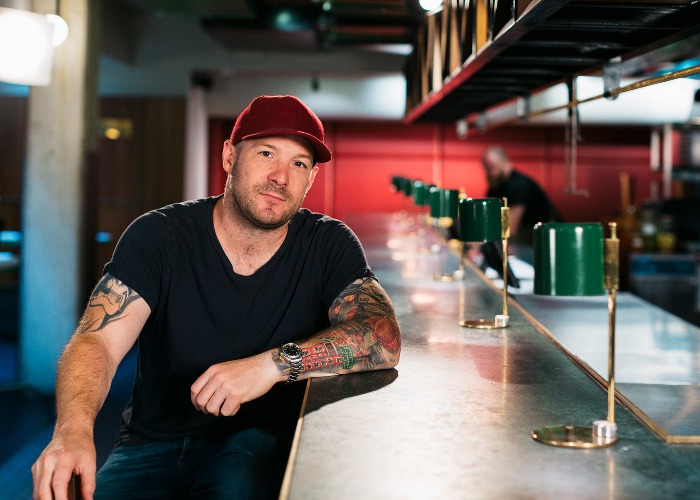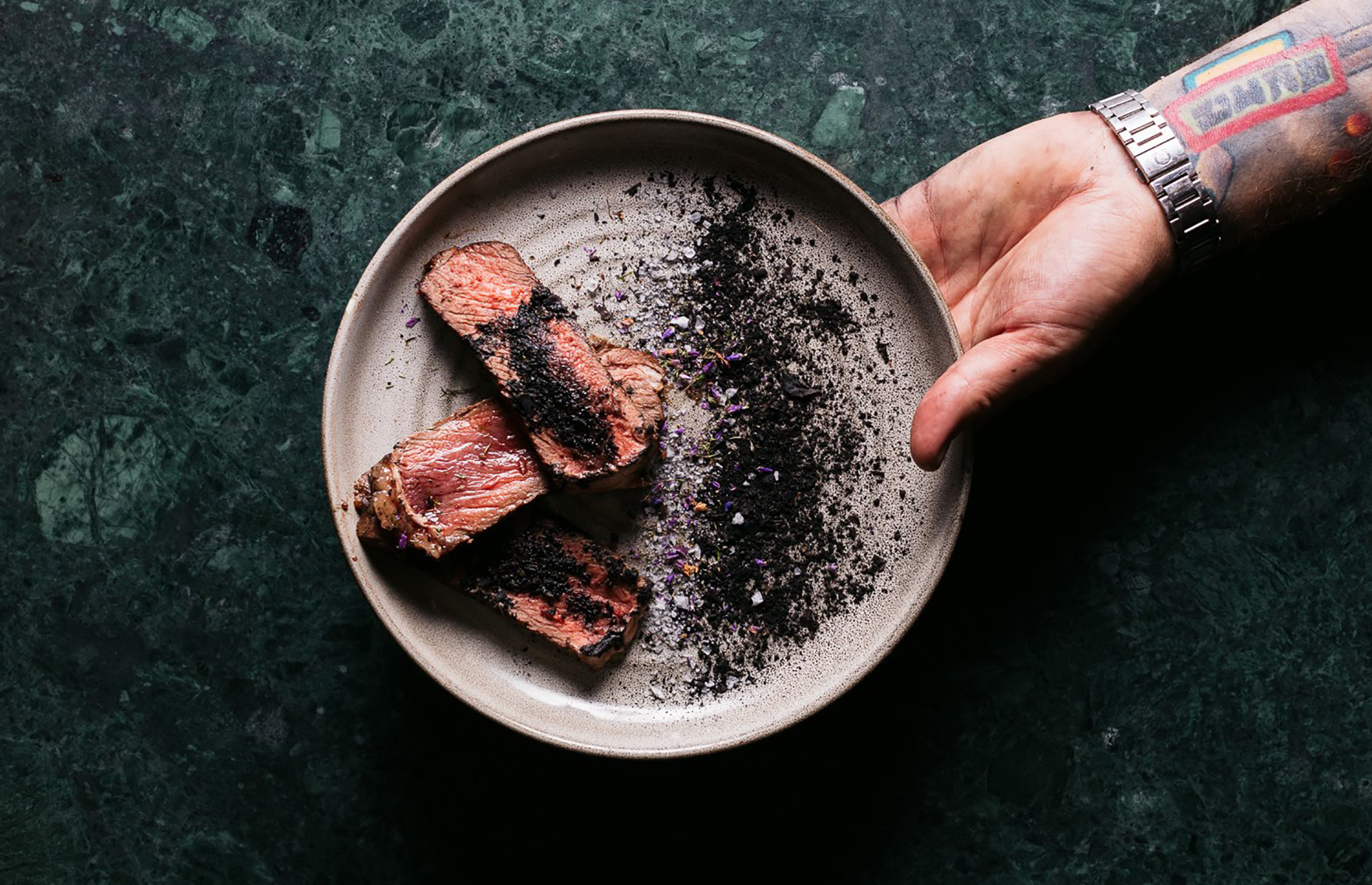
We grilled barbecue chef Neil Rankin on why he's ditching meat for vegan burgers and the pressures of working in the restaurant industry
Neil Rankin has always loved playing with fire. Having previously worked at Jamie Oliver’s Barbecoa, the now-closed Pitt Cue and Smokehouse, Rankin is known on the London restaurant scene for meaty cooking over coals.
In 2016, he opened the first of now three Temper restaurants – there's a spot in Soho, Covent Garden and the City. The running theme throughout all of them is big open kitchens, a fun atmosphere, great cocktails and, of course, top-quality barbecued meat.

But it isn't all about the grill. Rankin is passionate about making his restaurants as zero waste as possible – Temper orders animals whole and butcher in-house to make use of every part – and he's committed to creating a more mindful working environment in the kitchen.
We gave Rankin a call to find out about his early days in the industry, why he found his calling in barbecue and why, for his latest venture, he's swapping meat and fire for vegan burgers.
How did you go from studying physics to working in food?
After studying physics at university, I was a sound engineer for about six years or so and then I opened a chain of cafés. I was at a point in my life where I didn't know what to do and I've always been interested in cooking food. It was a midlife crisis, I think.
What were the first restaurants you worked in like?
The first ever was a little French restaurant that I worked in for free. It was lovely and I was there for about three months. After that I did a Cordon Bleu course.
I worked at a hotel in Surrey which was a different experience – 16, 17, 18 hour shifts back-to-back. It was intense but also good to pick up skills.
When you're 31 years old and trying to start a new career when everybody else has done 10 years more and is younger than you, I think you have to learn quickly. So I went in and learnt the hard way.
When did you become interested in barbecue?
I worked for Adam Perry Lang at Barbecoa, Jamie Oliver's restaurant. He was a famous barbecue guy from the States. He took me under his wing and trained me. After cooking fine dining, it's a big relief to get your hands dirty.
I liked the imperfection of barbecue. It’s much more of a primal thing and I got into it quickly. It was hard but it just felt like the right thing to do. Nobody was really doing it back then.
Do you prefer a particular style of barbecue?
Originally it was South American and Texas-style, but then over the years I've explored everything and now it's a mishmash. I mean, it's all basically the same thing, it just comes from different traditions. Now [what I do] is a blend, it's just cooking over fire.
How did you decide on the concept and the vibe for the first Temper in Soho?
It was because it was a basement restaurant. After doing Pitt Cue, the Soho thing was about setting up for a night out and I wanted it to be an experience. We wanted it to have, not a nightclub feel, but some atmosphere with loud music. I believe people going on nights out want entertainment as well food.
You want people to linger, spend money and drink. Separate restaurants where people come in and have a couple of dishes and leave are difficult. You want to create an entire night out for people.
How do you find managing workload and stress?
It's intense. I'm quite vocal about it. I've had a lot of problems with stress in the past.
It's exciting to open restaurants, that's the buzz of doing it. The stress is good at that point. I think the stress only becomes bad when things take a turn and the restaurant isn't working properly.
I don't work long shifts in the kitchen anymore. I did that for about ten years. You need time off, you need family time, you need to have a breather and get away from the restaurant industry because it's quite suffocating.
You've got reviews and comments, people calling you to give their opinion on a night out. People just text you and say “I had this meal. Let me tell you about how bad it was”. I mean what other career do you have where it's like that?
What do you do for staff wellness in your restaurants?
We don't do long hours as much as we can. I mean some people get paid hourly which is different. When I was working I was paid a set wage and working 80 hours a week. Some people want to work longer hours because they make a lot of money.
We create open kitchens so you aren't stuck in a room all day. You're in the middle of a vibey restaurant with people coming up to you and asking questions and music is playing. It's just more fun.
We've got a gender equal policy. We try and get as many women in the kitchen as possible to create less of a man atmosphere.
People all get along and we've got pretty happy chefs. We show that because we haven't really been hit as badly as everybody else by the chef crisis. We've always found chefs and we have good staff retention.
You're now opening Simplicity Burger, a vegan burger place. What made you want to make that move?
I'm interested in the vegan food market and also disappointed in the way it's gone processed. There seems to be this idea you can't make a vegetarian burger at home, you've got to buy it and it's got to be made in a lab.
I think that's a dangerous idea. I don't think in human history that kind of thing has ever worked out for us.
What will be in a Simplicity Burger burger?
Vegetables. It won't taste like meat, it doesn't bleed. I don't really want burgers to bleed. It's a weird phrase to use.
It just wants to taste really good. It's a simple no-waste burger restaurant. I want to get to the point where there is nothing coming out – no waste throughout the entire chain.
Neil Rankin is currently partnering with Ford Ranger Raptor and has created a limited-edition dish – a 60-day, dry-aged Hereford rib-eye steak garnished with foraged 'burnt sea dust' – as part of the collaboration. The dish will be on the menu at Temper Soho until 2 January 2020.
Main image: courtesy of Ford